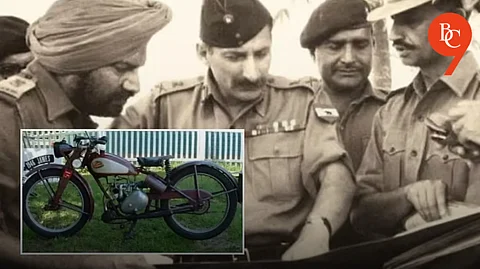

The 1971 India-Pakistan war that led to the creation of Bangladesh is full of dramatic moments, military strategy, and legendary anecdotes. One such story that often goes viral in India is the claim that Pakistan was split in two because its president, Yahya Khan, failed to pay Field Marshal Sam Manekshaw for a motorcycle. But what’s the real story behind this viral legend?
The roots of this tale go back to the days before Partition. As young officers, Sam Manekshaw and Yahya Khan served together in the British Indian Army. According to Manekshaw’s own recounting, he sold his motorcycle to Yahya Khan for Rs 1,000, but never received payment. Over the years, this unpaid debt became a humorous anecdote among army circles.
After India’s decisive victory in the 1971 war and the creation of Bangladesh, Manekshaw was asked about the old bike debt. With his trademark wit, he reportedly said:
"I waited for 24 years for Rs 1,000 which never came, but now he has paid with half of his country."
This tongue-in-cheek remark captured the scale of India’s victory and became a part of military folklore. It was never meant to be taken literally-Pakistan was not split because of a bike, but because of a complex web of political, social, and military factors culminating in the Bangladesh Liberation War.
Field Marshal Sam Manekshaw was known for his strategic brilliance and direct communication. During the 1971 war, he issued a stern warning to the Pakistani army:
"You surrender or we wipe you out,"a message that played a key role in convincing the Pakistani forces to lay down arms and avoid further bloodshed.
Manekshaw’s leadership, along with meticulous planning and coordination with political leaders, ensured India’s swift and decisive victory in just 12 days. The war ended with the unconditional surrender of 93,000 Pakistani troops and the birth of Bangladesh
While the bike story is a humorous footnote, the real reasons for Pakistan’s division were far more serious:
Political and cultural discrimination against East Pakistan (now Bangladesh)
The rise of the Bengali nationalist movement
Brutal military crackdown by West Pakistan
India’s support for the Mukti Bahini and decisive military intervention
The anecdote about the bike resonates because it humanizes history, blending humor with the gravity of war. It also highlights Manekshaw’s personality-witty, fearless, and unafraid to speak his mind.
No, Pakistan wasn’t split over an unpaid bike. But Field Marshal Sam Manekshaw’s legendary quip remains a symbol of India’s confidence and the lighter side of military history. The 1971 war was a turning point for South Asia, and stories like these remind us that even in the most serious times, a sense of humor can endure.
